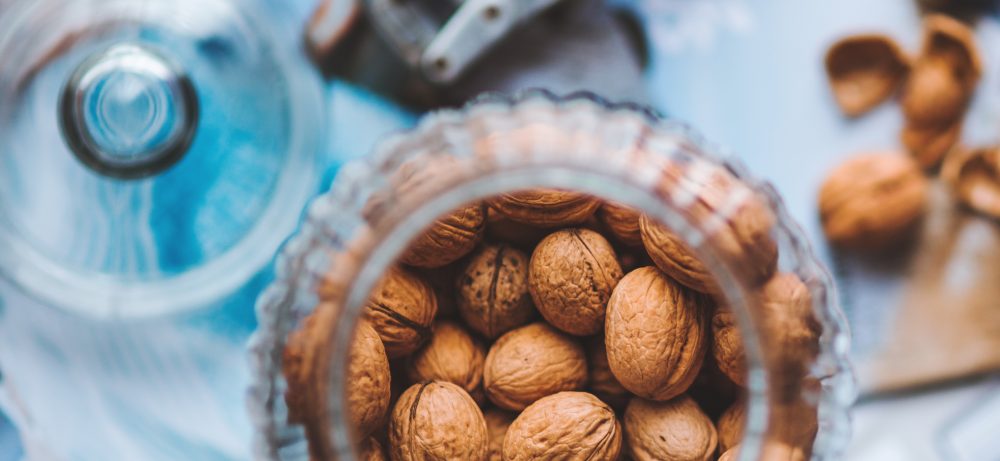
The next time you reach for a bag of nuts to eat as a snack, give yourself a pat. They are nature’s wonder food, packed with proteins, minerals, fibres and healthy fats. In fact, researchers taking a deeper look at nuts have found them to be heart-healthy and cancer-fighting soldiers. No wonder Janice Chong, dietitian based at Mount Alvernia Hospital says you should be nuts about nuts. Pun intended.
DIFFERENT TYPES, SAME HEALTH BENEFITS
Nuts come in many types, including almonds, macadamia nuts and walnuts. Irrespective of the type, nuts are generally healthy. Even as 80 percent of them are fats, these fats are monosaturated and polyunsaturated, which help to lower cholesterol and support various body functions like cushioning our organs and supporting absorption of fat-soluble vitamins.
Of all, walnuts enjoy a notable mention as they contain one of the highest amounts of Omega-3 fatty acids, particularly EPA and DHA. While not definitive, both have been associated with a wide range of benefits including lowering triglyceride levels in your body, fighting dementia and inflammatory diseases such as heart diseases.
HOW OFTEN SHOULD YOU CONSUME NUTS
Just like every other food, nuts should be consumed in moderation, despite their touted benefits. Mainly, this is due to the high calorie content which acts as a double-edged sword for those who are careful with their food portions.
Consuming a handful of nuts, about 40 grams, a few times a week is a wholesome recommendation, as long as they are integrated as part of a well-balanced diet. When starting to incorporate nuts into your diet, a caveat to pay heed to is: the nuts chosen should not be covered in sugar, salt or any other flavourings, all of which will potentially cancel the health benefits they provide. On the same note, it’s best to eat them raw, baked or unsalted.
MIXING THEM UP
More than just standalone snacks, nuts can be a delicious addition to your main meals, salads and desserts. A suggestion is to mix almonds and walnuts in food like oats, yoghurts and even pasta. They act not just as flavour enhancers but also give the meal a healthier spin.
For macadamia nuts, they go better in vegetable salads and with unsweetened dried fruits. Last but not least, cashews taste good in stir-fried dishes and curries. Beyond meals, nuts also go well with berries, blending together in smoothies and fruity drinks for a healthy zest.
NUT ALLERGY IS A REAL DANGER
While nuts seem to make everything better, they are to be avoided in people with nut allergies.
Tree nut allergy can cause a severe and potentially fatal allergic reaction called anaphylaxis. It happens when your body’s immune system overreacts by releasing massive amounts of chemicals that cause allergy symptoms. When it happens, it is a medical emergency that requires epinephrine injection as an immediate aid and hospitalisation for further treatment and observation.
To help diagnose if you have a nut allergy, you can seek a doctor’s advice. The doctor will check on your family history, determining if there is someone else who had a previous allergic reaction to nuts. You will also be asked to stop certain specific foods in your diet, in a process of elimination to determine if nuts are the cause of allergic reactions, if any.
Besides these methods, some doctors will also use Skin Prick Test (SPT) and blood tests in diagnosing both IgE-mediated food allergies.
If you want to reintroduce nuts into your diet despite knowing you have an allergy to them, you will certainly want to get a doctor involved. Among the things that he or she will do are repeating the necessary tests such as SPT to see the degree of your allergic response, and conducting supervised oral food challenges in a safe hospital setting.
Article contributed by Ms Janice Chong, a dietitian based at Mount Alvernia Hospital. Click here to learn more about our Nutrition and Dietetic services.
This article is taken from our My Alvernia Magazine Issue #31. Click here to read the issue on our website or on Magzter.